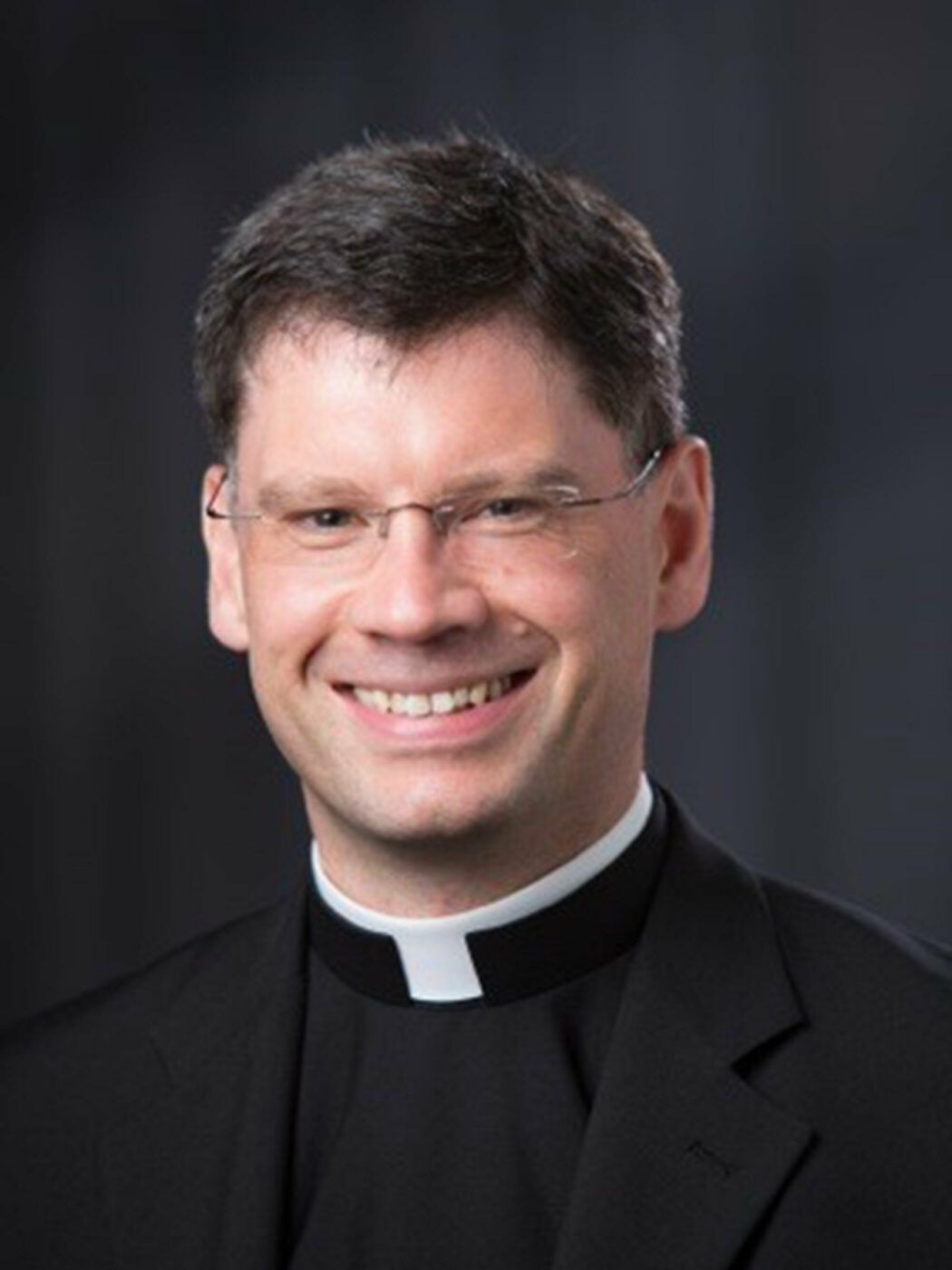A retired missionary told me how the women would go to draw water at the coolest part of the day. Together, they would go to the well. It was a social gathering. There would be much banter, chat, and laughter. What he said reminded me of another woman, at another well. This time, however, the woman was a lonely figure and came unaccompanied. She came at the hottest time of the day when she presumed no one else would be there. She was a Samaritan with a history. What she found, however, was not merely clean, fresh water. She found Christ and his waters, welling up to eternal life. She let Christ find her. The same miracle happens in every Confession.
The sacraments flow from the side of Christ Crucified. Pure waters of grace, they are “springs of living water welling up to eternal life.” The Catholic priest has the privilege of dispensing these waters, especially as he sits by the holy well that is the Sacrament of Reconciliation. The priest, by sitting and waiting in the confessional, witnesses to the power of this sacrament and the forgiveness of sins. He calls out: “Come to the waters, though you have no money, come . . .” (Isa 55:1). The pure waters of grace and forgiveness are poured out in the Holy Spirit in Confession. “Poured out” is the language of the new translation of the formula of absolution. Poured out evokes images of grace, of Christ’s blood, of streams of living water. Christ, in his priest, longs to remove our sins and say, “I absolve you.” “Go in peace.” Like Christ, the priest sits by that well and waits and listens and heals.
The Woman of Samaria came, sinful, but open to something better and greater. The mess that was her life had not worked out, which is why she came to the well at noon, the hottest time of the day, the time no one else would be there, such was her shame and her need to avoid others. Not for her the line of chatting, laughing women in the cool of the day. Her lot was the walk of shame, slinking to the well in the heat when no one was around. But Someone was there. Jesus was waiting. The light was on for her.
After the saving encounter with Jesus, she left her water-jar behind empty, a sign of her former life that led to emptiness. She became a vessel of the waters of eternal life, the waters of forgiveness and peace. Christ had prepared this moment for her. He prepares similar moments for us. He longs to forgive and free us. “If only you knew the gift of God,” he says to each of us (John 4:10).
Christ is the model confessor. St. John’s Gospel tells us that Jesus “sat down by the well” (4:6). The priest confessor sits by that well to dispense the waters of forgiveness and grace. Confession is usually the only sacrament for which the priest sits because in the Sacrament of Reconciliation he is listener, judge, and healer. He dispenses a mercy not his own, a mercy directed where it is most needed, to the wounds, the weakness, the sin uncovered for Divine Mercy to heal and sooth and restore.
Penitents come to meet Christ in confession. They deserve to meet him. In those five or ten or twenty minutes of an individual Confession, the priest will offer his mind and ear and voice to Christ. He will do his best to be Christ, to listen as Christ, to counsel as Christ, to let Christ speak to the heart of the one who has courageously opened his or her heart in humility and hope—in the sacred secrecy of this sacrament of healing.
The recent translation change to the formula of absolution highlights these purifying and healing waters. God the Father “has poured out the Holy Spirit for the forgiveness of sins.” “Poured out” echoes the eucharistic words of Consecration where Christ’s Blood is poured out for the forgiveness of sins. In Confession, the Holy Spirit is poured out for the forgiveness of sins. Both sacraments flow from the open heart of Christ Crucified. Blood and water and the Spirit are poured out for the forgiveness of sins and flow into the Mass and the Sacrament of Penance for us. In this way, the victory of Christ’s Cross is applied to each one who approaches. His love is personal.
There is no better preparation for Easter than a sincere Lenten confession. The confessional light is on for you. Jesus waits for you as he waited for the Woman of Samaria. Remember, his name is Jesus because he is the One who will save his people from their sins (Mt 1:21).
Pray the Lord of the harvest to provide priests to absolve from sin, to anoint the sick, and to consecrate the Lord’s Body and Blood—that the blessings of Christ’s saving sacrifice may be “poured out” for generations to come.


